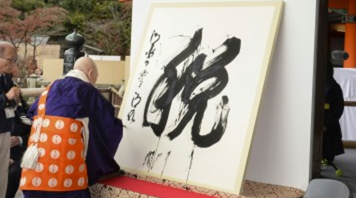You would be forgiven for never having heard of the Oxford Word of the Year for 2023 if you are not a member of Gen Z, but language experts chose it to show how that generation and its online culture is expanding our day-to-day vernacular and will continue to shape language trends in the future.
“Rizz” only arrived as a word in late 2021 when a New York gamer called Kai Cenat started talking on his Twitch stream. Once the word jumped to TikTok in 2022 it went utterly viral. If you don’t know what these words mean, don’t worry, dear reader — ask the kids. Then standby for a sigh, shoulder flop, foot shuffle, answer given with young eyes bent downwards glued to a screen muttering “Duh,…rriiizzzzz… like as in charisma”
The point of rizz (never “rizzy”) is that it isn’t really a word, more a state of mind and how you make others feel. This explains why there are so many variations — verb, noun, adjective, almost infinite neologisms. It is one reason why it is so hard, deliberately so, for those of parental, let alone grand-parental age to understand. That, and because so many modifiers to the word seem to require further language lessons from TikTok (where the hashtag #rizz has 36 billion views), which are beneath the dignity of anyone over the age of 25. I took one for the team and went there, here’s a summary.
So, you can have “rizz” (basic level), you can “rizz someone up” (next level), or you can reach the heady heights of the Rizzard, the Rizzler, Rizzly Bear or Lord of the Rizz. If your rizz game is good, you are “W-rizz” (winning at rizz); if it’s bad, it’s “L-rizz” (losing). If it’s terrible you have negative rizz. “Unspoken rizz” is a controversial concept: it means the wordless winks and lingering glances involved in flirtation, but as rizz is generally considered to be highly verbal, many claim there is no such thing. If you need a rizztraining order, you’ve gone too far!
Rizz pipped other words from the social media age to the top spot, which deserve a mention, including ‘Swiftie’, ‘beige flag’, and ‘situationship’, as well as the more scientific terms ‘heat dome’ and ‘prompt’.
The shortlist was:
Swiftie (n.): an enthusiastic fan of the singer Taylor Swift.
de-influencing (n.): the practice of discouraging people from buying particular products, or of encouraging people to reduce their consumption of material goods, esp. via social media.
beige flag (n.): a character trait that indicates that a partner or potential partner is boring or lacks originality; (also) a trait or habit, esp. of a partner or potential partner, viewed as extremely characteristic, but not distinctly good or bad.
rizz (n.): style, charm, or attractiveness; the ability to attract a romantic or sexual partner.
heat dome (n.): a persistent high-pressure weather system over a particular geographic area, which traps a mass of hot air below it.
prompt (n.): an instruction given to an artificial intelligence program, algorithm, etc., which determines or influences the content it generates.
parasocial (adj.): designating a relationship characterized by the one-sided, unreciprocated sense of intimacy felt by a viewer, fan, or follower for a well-known or prominent figure (typically a media celebrity), in which the follower or fan comes to feel (falsely) that they know the celebrity as a friend.
situationship (n.): a romantic or sexual relationship that is not considered to be formal or established.
Meanwhile, the Japanese have chosen to memorialise a term depressingly familiar to all.
The kanji zei was chosen in a survey by the Japan Kanji Aptitude Testing Foundation. In an annual ceremony, it was inscribed with a giant brush on a 21 sq ft piece of traditional washi paper by a master calligrapher.
The character for “tax” has been selected as Japan’s kanji, or ideogram, of the year, suggesting public anxiety at a time when the government is attempting to cut taxes while also raising spending. The choice of tax as character of the year is not without ironies. Like many countries, Japan is struggling with rising prices. The government of the prime minister, Fumio Kishida, announced tax cuts aimed at relieving pressure on families and stimulating consumption.
Seihan Mori, the artist and chief priest of Kiyomizu-dera, the temple in Kyoto where the choice is made, reflected the selection of ‘tax’ reminded him of the financial challenges facing Japan. “How taxes are spent is under intense public scrutiny. I hope taxes are used to serve people’s wellbeing.”
Some 148,000 votes were cast in the poll, and zei won with fewer than 6,000, indicating that there were a large number of suggestions. The close runner-up, with only 400 fewer votes, was sho, meaning hot — Japan, like much of the planet, experienced record temperatures this year, which are continuing into a winter so mild that bears are refusing to hibernate.
Third place went to sen, meaning war, reflecting concern about Ukraine and Gaza, but also about the potential for conflict in Japan’s own region, which includes Taiwan and North Korea.
The next on the list were the kanji for tiger, victory and ball, all references to the Hanshin Tigers of Osaka, Japan’s most-loved and inconsistent baseball team, which won the league for the first time in 38 years.
Meanwhile at home our words of the year are being quietly erased. While I always giggled at our tax collectors te reo Māori label of Te Tare Take (Taake), the rush to undo our departmental names must not change or indeed influence our use or choice of language in our courts. That would be disrespectful to the majority of our court users. American poet, singer, and civil rights activist Maya Angelou, said it best:
“People will forget what you said, people will forget what you did, but people will never forget how you made them feel.”


